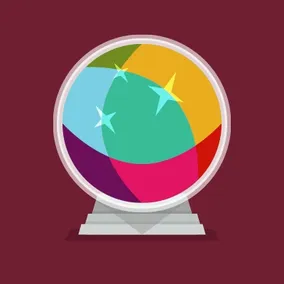5 Lessons from 1.5 Years at Viget

Aakash Tandel, Former Data Scientist
Article Categories:
Posted on
I’ve learned a lot since joining Viget 1.5 years ago. Like any good job, I've gained experience in my field (data science and analytics), in addition to growing as a coworker, mentor, and mentee. Here are 5 lessons I’ve learned since joining Viget.
A few weeks ago, Aubrey suggested that I write an article. I told her I was already working on one, but when I sent her my Data Science and Cloud Computing article, she shook her head. Maybe I could talk about all the things I’ve learned (non-technical) during my time Viget, from my apprenticeship to becoming Viget’s first data scientist. Maybe my article would inspire people to apply to our apprenticeship program. (Applications are still open!) My mind flooded with all of the lessons, big and small, that I’ve learned in the past year and a half.
- Send follow-up emails to clients after meetings so that everyone knows their individual next-steps.
- Block off time on your calendar for peer reviews.
- Close the dishwasher otherwise the beeping will annoy Leo.
Sure, I could come up with something I’ve learned.
I’ve learned a lot at Viget, and I continue to learn something new nearly every day. Like any good job, I gain experience in my field (data science and analytics), in addition to growing as a coworker, mentor, mentee, friend, and human. Here are five lessons I’ve learned since joining Viget.

1. Leverage lessons from your past, even if your previous job and your current job seem wildly different.
Unlike the baby boomer generation, most people don’t work in one field, for a single employer, until we’re 65 anymore. You’ll probably work in multiple fields and for many employers. But you’re not starting from scratch even if this is your first foray into a new profession. The lessons you learned in your past can help you in your new gig.
I graduated undergrad with a degree in economics and instead of getting a job in the federal government or a bank like my classmates did, I became a real estate agent and investor. After a few years of real estate, I enrolled in a part-time master’s program in applied economics. Additionally, I took one summer’s leave from grad school to attend General Assembly’s Data Science Immersive bootcamp to diversify my skill set and pave my path into the tech industry. As a real estate agent, I learned how to get and keep clients. I learned how to manage myself, my time, and prioritize tasks. As an economist, I learned how to analyze and model data. As a data scientist, I use the skills I learned as an agent, investor, and economist to be the best version of myself for my team and my clients. So, leverage those lessons from your past and use them in your new job.
2. There is a lot you could learn. Pick one topic – one at a time – and spend some time learning about it.
Technology changes rapidly and even if you’re not in the tech industry, I’d wager there are hundreds of topics you could learn more about. For the developer, you can learn a new programming language, work on a new tech stack, or learn a bit more about DevOps. For the data scientist, you can dive deeper into Markov Chain Monte Carlo methods or SARIMA models or figure out how to take your workflow to the cloud. Your learning options are practically infinite, but nearly infinite options can be intimidating.
As an apprentice, I felt like there were millions of topics I should know about, from data engineering and ETL, to running paid advertising campaigns using Google Ads. I quickly learned that I would never know it all, so I focused my learning on applicable data science techniques.
Don’t let an excess of options stop you from learning. Simply pick a topic and stick with it. If you find a topic interesting, dive deeper and try to implement the things you learned at work. Aim to become your company’s expert on the topic before moving on to the next thing. And if you really want to test you newfound skill, teach your coworkers about it over lunch or during a microclass. There is no better way to master a subject than by teaching it.
3. You won’t know everything on day one. That’s normal and totally fine.
Contrary to many job listings, you don’t need to be an expert in your field before starting your new job. You also shouldn’t pretend to be an expert in your multifaceted, cross-disciplinary, and ever-evolving field. As an apprentice, I initially felt pressured to have an answer to every question and be an expert on analytics and data science. I wanted to get hired, and proving my competency was important in securing the offer letter. But prior to the apprenticeship I had absolutely no experience with digital analytics. I quickly realized a better approach to my apprenticeship would be to soak up as much information as possible. Not only did I begin learning more after this shift in mindset, but my job anxiety dropped. It’s hard to pretend to know everything.
One of the most beneficial traits you can have as a professional is to always remain curious and open to learning new things. When you don’t know something, ask questions and probe a little deeper. The benefit of working for a company (even a small company) is that you can learn from your coworkers and broaden your skill set over time. You will learn a little bit more each day and by the end of a year, you will be that much more capable as a designer, developer, analyst, or project manager.
4. Build good work life balance habits.
Our phones allow us to check our work email at midnight and respond to client Slack requests at 6:30 in the morning. Technology makes working a nearly all-day activity, if you allow it. In a previous career, I never stopped working. I was self-employed and that meant if I didn’t work, I wouldn’t be able to eat. Safe to say, the phrase “work life balance” wasn’t in my repertoire.
It’s no secret that working all the time isn’t healthy and it can lead to burnout. When you start a new job, you may be trying to prove your worth to your new boss and your new coworkers by working longer hours, responding to email on weekends, and generally devoting your entire life to the company. It may even be your company culture to do so but it’s most likely unhealthy.
When I first started my apprenticeship, I checked Slack messages at all times of the day (and night). On the weekends, I would catch up on email and spend time reading up on topics I was unfamiliar with. But I soon realized I was working like I did in my previous self-employed life. I knew I needed to be stricter with myself and I decided to box my work life in during working hours.
Be efficient and effective during your time at work, but spend time away from work and leave at a normal hour. Unless it’s urgent, don’t work on weekends and stop yourself from checking email as soon as you wake up. Your emails will still be there after you’ve brushed your teeth and had a cup of coffee. Some of my work life balance hacks include removing Gmail and Slack from your phone, exercising regularly, and spending 20 minutes before you go to sleep and after you wake up without technology. When you’re at work, get your stuff done. When you’re at home, turn it off, decompress, and relax. You’ll be better at your job when your home life is happy and healthy.
5. The best part of your job will be your coworkers.
Sure, gym stipends, free meals during all-company meetings, unlimited paid time off, health insurance, and a hearty bonus at the end of the year are great. Those are a few reasons why you might take an offer and join a company. But you’re probably not going to stay at the firm because of the free meals or the health insurance. (That said, as a former self-employed person, health insurance is a huge benefit of working a W-2 job.) I come to work – even though Viget has a flexible work-from-home policy – because I like talking about the newest Netflix show or true crime podcast with my friends around the Viget HQ lunch table. If I worked from home, I wouldn’t get to be periodically distracted by Leo, Greg, and Owen arguing about soccer and I couldn’t talk to Brian about UVA sports.
Coworkers are going to be a big factor in your happiness at work. Get to know the people around you and don’t just see them as an Art Director or a Copywriter. See them as Elliott, father of two who is great about introducing his kids to creative work like photography and fashion, or Elyse, the perpetually peppy and enthusiastic friend of yours who is always down to attend a photography meetup in the city. Friends are better than those-people-you-work-with, so take a risk and make an effort. Spend time with your coworkers outside of work. At Viget, we have gone out to Nationals and D.C. United games, played board games on game nights, and I’ve genuinely become friends with the people I see every day.

Conclusion
Work is a huge part of our lives. It’s a place to learn, grow, see your friends, and master your craft. At Viget, I learn more about analytics and data science every day by working on client projects and products. I also learn what it means to be a good coworker and friend. If you’re looking for a change in your career or are looking for your first job in tech, take a look at our apprenticeship program. We are taking applicants through the month of August. As a former apprentice, I’d say it’s an amazing program and one of the best launch pads for your new career. Got some questions? Let me know. I’m happy to chat with anyone about my experience as an apprentice at Viget.